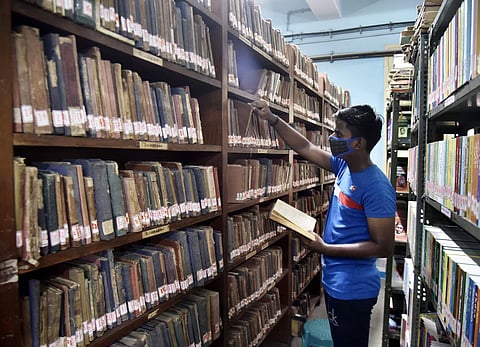

A change in the exam pattern would raise several doubts in the minds of the aspirants. In this vein, the GMAT Focus Edition, which was announced this July, caused a significant amount of fanfare and buzz.
Naturally, aspirants have a lot of questions following this announcement – what is this new version all about? What of the current version of GMAT? Which version of GMAT do I attempt? How different would the preparation be? – and so on.
Here is the GMAT Focus Edition explained – and the answers to questions surrounding it right from the experts themselves.
GMAT Focus Edition – What’s new?
With the Focus Edition, the following changes have been announced:
- Instead of four sections, i.e. Quantitative Reasoning (Quants), Verbal Reasoning (Verbal), Analytical Writing Assessment (AWA), and Integrated Reasoning (IR), the Focus Edition will have three sections, namely Quants, Verbal, and Data Interpretation (DI)
- The exam is also significantly shorter, with the candidates having to answer 64 sections per module within 2 hours and 15 minutes instead of 80 questions within 3 hours and 7 minutes
- The total score scale has increased from 200-800 to 205-805. The scores for DI, which replaces the IR section would be counted in the final score
- Candidates can now put up to three answers per section for review and change
- Additionally, questions pertaining to Geometry and Sentence Correction have been removed
Experts believe that these new changes act in the candidate’s favour, and can positively impact their performance in the exam.
More relevant to candidate strengthSandeep Gupta, Founder of Top One Percent, believes that the Focus Edition can help create more market-ready candidates. “Essentially, all sections that are not relevant to today’s skill requirements, like geometry, have been removed,” he explains.
Gupta also adds, “With the removal of the AWA candidates who are not very good with their Written English would be encouraged. There would be more candidates from India, where English is not taught as a first language.”
The shortened format and streamlined modules also play to the candidates’ strength, opine experts.
Ramnath Kanakadandi, Senior Course Director at TIME, says, “The Focus Edition offers a well-rounded and comprehensive testing mechanism, and is overall a better representation of a candidate’s strength. Candidates from whom logical reasoning and data interpretation are their strong suit can perform well.”
Reduce time enhances candidate convenience
Another cause for relief to the candidates is the reduced exam time, say experts.
Krithika Srinivasan, MBA Admissions Consultant and Co-founder of CareerLadder says that she has had students express how they found the exam difficult to sit through.
“Three hours per section is a lot of time. There was also no time allotted for breaks. Students with ADHD, particularly, and other disabilities naturally tend to find it difficult to focus and sit steadily for that long. Now, not only has the exam time been reduced, but the candidates can also take one 8-minute break in each section,” she says.
Which version of the GMAT to attempt?
There are, however, a myriad of insights on which version of the GMAT candidates must attempt.
Some experts believe that between the current edition and the Focus Edition, candidates must choose the version that aligns with their strengths.
“Candidates with strong writing abilities should go for the current version of the GMAT, while it is still valid. If a candidate’s strong suit is logical reasoning, or if they are weak in writing, attempting the Focus Edition would give them a better chance of gaining a good score,” says Ramnath Kanakadandi.
Some experts also say that the choice depends on the intake they are aiming for.
“For this year’s intake, most B-schools are accepting the current edition of GMAT. The Focus Edition will only be accepted by B-schools officially from January 2024,” says Sandeep Gupta.
Should the prep change?
It is believed among exports that since nothing new was added to the GMAT, candidates’ preparation does not have to change.
Sandeep Gupta opines that as Data Insights is now a scoring section, candidates should focus more on the IR and data interpretation sections. He also deems it very important for candidates to be foundationally strong in each module. He recommends they brush up on Reading Comprehension, Critical Reasoning, and Mathematical concepts.
“Chances are, candidates have last studied these concepts during school or college. These questions in the GMAT would be at a more advanced level, and expecting the same standards as they are used to will do them no good,” he explains.
Another important thing that candidates should have in mind, Ramnath Kanakadandi says, is to ensure that they are not weak in any of the sections. “Candidates must be as thorough as they can be,” he says, and goes on, “and make sure that they are not lacking in any area. Equal weightage must be given to all sections. However, I would also ask candidates to lay specific emphasis on Quants and Data Insights.” He also suggests candidates take a lot of computer-based mock tests, in order to familiarise themselves with the pattern.
Krithika Srinivasan says that most importantly, candidates must not “sweat over which edition of the GMAT they would be attempting,” and prepare to score the highest percentile score they can.
